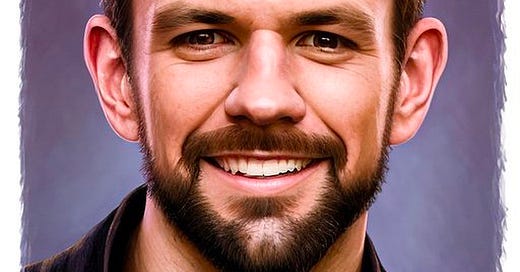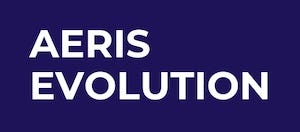The Founder’s Journey: Insights from Aeris Evolution’s Alden Black
I had the opportunity to interview Alden Black, the founder and CEO of Aeris Evolution, to gain insight into what it truly takes to succeed as a founder, especially in such a regulated industry.
What does it take to be a founder? How do you know if you are ready and if you have a viable idea? WashU alum Alden Black, ’11, is the founder and CEO of Aeris Evolution, an aerospace startup that is creating the next generation of commercial aircraft aimed at overcoming the challenges currently facing the aviation industry. I sat down with Alden to learn about his journey as a founder and hear his insights into what it requires.
Taking the Leap into Entrepreneurship
Aerospace is not your typical startup field – it is extremely capital-intensive, demands a large team, is highly regulated, and has long development cycles. Yet, these hurdles did not stop Alden from leaving Boeing in 2022 to enter this startup world. The pandemic gave him time to reflect on the aviation industry’s current challenges. Between trying to decarbonize emissions, correct supply shortfalls, gain back the public’s trust, and handle high costs and regulations, the industry is facing a complex and prolonged period of transformation. Alden saw an opportunity to combat these challenges and ultimately create an environmentally and financially viable aircraft. When I asked Alden what ultimately pushed him to take the chance, he replied, “I took a leap of faith… I give credit to my wife (then fiancé), who said ‘if you don’t do this, when you’re on your deathbed, will you be happy?’... That thrill, or the enticement of another grand adventure… combined with the boredom made me do it.”
Character Traits of a Successful Founder
Taking that leap, Alden has now been a founder for two and a half years and has gained valuable, in-depth insight into what it truly takes to succeed. He emphasized that humility is essential for navigating the ups and downs of startup life. He continued, “You’re going to fail more times than you care to count. You’re going to be told ‘no’ a thousand times. You’re really going to have to look hard at yourself in the mirror and make course corrections, recognizing that you don’t know everything and you have to learn.” This mindset separates those who persevere from those who give up when the going gets tough. In Alden’s experience, the willingness to adapt is key to overcoming the inevitable obstacles on the entrepreneurial journey.
Along with humility, Alden highlighted fierce resolve as another crucial trait for any founder. Alden described, “There are so many headwinds day in and day out, moments of doubt that you truly need to relish and enjoy the day-to-day grind.” Being a varsity track and field athlete while studying engineering at WashU helped Alden build the resilience needed to face these pressures. He compared the work of a founder to running a great distance, illustrating the importance of endurance, discipline, and the ability to keep pushing forward even when the path ahead seems daunting.
Alden’s words made it clear that being a founder requires more than drive and ambition — it demands a deep belief in what you’re creating, especially when the journey is uncertain. “You really need to believe in the vision of what you are trying to do,” he said, punctuating that confidence in both the problem and solution is essential during difficult times. However, Alden also stressed the importance of recognizing personal limits. “When I did my doctorate, I learned where the bottom of that emotional and physical tank is, what the warning signs are, and how to bounce back from that,” he shared. This self-awareness has been pivotal to his ability to stay resilient and keep pushing forward as a founder, ensuring he can face each challenge with renewed energy and focus.
Building and Relying on a Support Network
Yet, resilience and self-awareness alone aren't enough. Founders need to rely on more than just themselves. Alden recognizes it is his strong support system that helps keep him grounded. He believes it is essential to have friends and family who are willing to call you out when necessary and remind you that, at the end of the day, you are just a person. For him, this network of supportive relationships helps maintain perspective and ensures he doesn't lose sight of his well-being amidst the intensity of being a founder.
Storytelling and Communication in Entrepreneurship
Beyond the technical skills required in entrepreneurship, Alden emphasized the value of storytelling. “Initial success for me was my ability to solve equations and design an aircraft, but that’s only a small part now,” he said. “It’s more important to present and tell a compelling story that motivates people, and gets them bought into the idea.” Founders must be able to communicate their ideas clearly so others can grasp the vision and understand why it matters. This is especially true when engaging investors, who need to see the idea's potential and the founder’s ability to execute it. Storytelling is also fundamental when inspiring employees to work toward the same goals. Without a compelling narrative, even the most innovative ideas can fall flat. Being able to tell that story effectively is what transforms a vision into reality.
Entering the Aerospace Industry
Alden’s perspective illuminates that those aspiring to enter the aerospace industry must possess both a passion for creating tangible products and a natural curiosity for problem-solving. This field demands a hands-on approach and a deep understanding of intricate systems. Even more, aerospace engineering involves working on the cutting edge of innovation, constantly pushing the boundaries of what’s possible. Alden describes the work as action-packed and high stakes, noting, “Every time an aircraft flies, you’re near the limit of what the physics of the plane can do. That is a very fun design and engineering paradigm.” This complex work excites Alden, and he believes it will resonate with those who thrive in high-pressure environments where precision and creativity meet. “If you like that kind of challenge,” he advised, “do aerospace stuff!” The aerospace industry isn’t just about technical expertise to Alden — it’s about embracing the thrill of acknowledging the limits of physics and finding innovative ways to defy them.
Deciding to Become a Founder
For those grappling with becoming founders, Alden depicted the decision with a four-part Venn diagram. The first circle contains the things you excel at. The second circle represents what you love — what drives and excites you. In the third circle, we have what society is willing to pay for or invest in. And finally, the fourth circle is what society needs. The intersection of these four circles is where the real opportunities lie. According to Alden, finding this "magic middle bit" is key. If that intersection exists, it’s a signal that your idea has the potential to succeed, guiding your decision on whether to take the leap and become a founder.
Final Thoughts on Embracing Challenges as Opportunities
Alden’s journey offers invaluable insights into what it truly takes to be a founder, especially in a demanding field like aerospace. It’s about having a passion for your idea and possessing technical expertise, but also about having a combination of resilience, adaptability, and the ability to communicate a compelling vision. Alden’s reflections underscore the importance of self-awareness, knowing when to rely on others, and understanding that failure is an inevitable part of the process. His advice for those considering the entrepreneurial path is clear: find that magic intersection of your talent, passion, society’s need, and threshold to invest. When you do, ensure you can tell a story that convinces others to believe in that vision. Prosperity as a founder comes not just from brilliant ideas but also from the ability to navigate challenges, inspire others, and stay grounded in the face of uncertainty.





